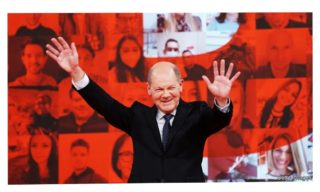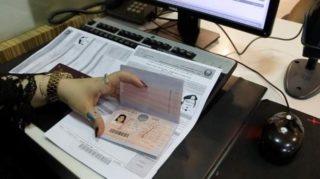
TOKYO — ABE SHINZO had already guaranteed his place in Japan’s history books. As prime minister from 2012 to 2020, he served longer than any other post-war leader. When an assassin shot him at an election-campaign event on July 8th, Mr Abe, 67, also became the first Japanese head of government to be killed in the post-war era. The shooting is a tragic coda to the life of one of the most consequential politicians of modern Japan.
Though as a boy he dreamed of becoming a filmmaker, Mr Abe’s path into politics was all but predetermined. Like many of his peers, Mr Abe hailed from a family of statesmen: he was the son of Abe Shintaro, a former foreign minister, and the grandson of Kishi Nobusuke, a suspected war criminal who later served as prime minister from 1957 to 1960. Mr Abe considered it his political mission to complete their unfinished work: restoring Japan’s place in global power-politics and dismantling some of the pacifist policies his country adopted, under pressure from American occupiers, after its defeat in the second world war. To critics, he represented a dangerous strain of nationalist revisionism. To supporters, he was the realist visionary Japan needed in a more turbulent modern world.
Mr Abe’s first stint as prime minister, from 2006 to 2007, ended amid financial scandals and poor health. When he returned to office in 2012, to a country reeling from the global financial crisis and the triple disaster (earthquake, tsunami and nuclear meltdown) in Fukushima, he declared that, “Japan is not, and will never be, a tier-two country.” He came armed the second time with an economic agenda, “Abenomics”, to accompany his geopolitical vision. His “three arrows”—loose monetary policy, expansionary fiscal policy and structural reform—helped pull Japan out of its long deflationary doldrums and boosted stockmarkets, though the economy never reached the inflation or growth targets his government set. He tweaked the legal framework to allow Japan’s Self-Defence Force, as its army is called, to play a more active global role, though he failed to achieve his goal of revising Japan’s post-war constitution, which technically forbids the country from possessing “war potential”.
Mr Abe left an imprint on geopolitics, as the outpouring of tributes from world leaders following his death attests. Diplomats across the world now speak of Asia in terms of the “Free and Open Indo-Pacific”, a coinage of Mr Abe’s. The “Quad” grouping of America, Japan, India and Australia was another of his ideas. The Trans-Pacific Partnership, a big Asian trade pact, survived America’s withdrawal under Donald Trump largely thanks to Mr Abe’s leadership. The Lowy Institute, a think-tank in Australia, called Japan “the leader of the liberal order” in Asia on his watch.
Yet at home Mr Abe remained polarising, even as he won election after election. His changes to Japan’s security laws triggered big protests. His historical denialism made it harder to repair Japan’s relationship with South Korea, a former colony; his sustained courtship of Vladimir Putin in an effort to resolve an old conflict over disputed territories went nowhere. Corruption scandals marred his administration’s reputation. Japan’s ranking in press freedom indices slipped during Mr Abe’s tenure. But although his government’s approval rating had been wallowing when he resigned in September 2020, a subsequent poll found that 74% of Japanese approved of his rule.
Mr Abe remained a powerful figure in Japanese politics after leaving office. From his post in parliament he led the ruling Liberal Democratic Party’s largest faction; he used his bully pulpit to continue pushing for a more muscular military posture. He put his influence to work on the campaign trail too, stumping for candidates ahead of upper-house elections scheduled for July 10th.
It was at one such appearance in the city of Nara, an ancient capital south of Kyoto, where Mr Abe was shot. The killing shocked Japan, where guns are strictly regulated and political violence has become exceedingly rare. (Japan recorded only one gun death in 2021.) Observers had seen the upcoming election in part as a test of how far Kishida Fumio, the current prime minister, would be able to pull away from Mr Abe’s influence within the ldp. Instead, Mr Kishida will be assessed on his management of the fallout from Mr Abe’s death. After the killing a visibly stricken Mr Kishida pledged to go ahead with the vote, vowing to “protect our democracy” and “not succumb to violence”.
Ironically, Mr Abe’s death also reinforced one of his central political messages: that the world is a dangerous place and Japan must outgrow its post-war pacifism. Mr Abe had the world beyond Japan’s borders in mind. “The Japanese people have had to face the reality that, if a country is determined enough, an invasion, an act of aggression can actually occur,” he told The Economist in an interview following Russia’s invasion of Ukraine. “In such circumstances, we are coming to realise that our own efforts and our own willpower are of the utmost importance when it comes to protecting our country.” For Mr Abe, Japan itself proved dangerous too.
By The Economist




